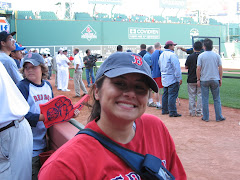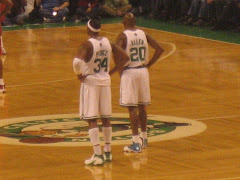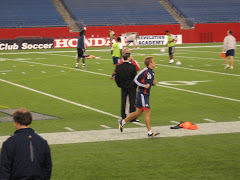Chapter 9: What Can We Do? By: Allan Johnson
This chapter is about…
Privilege
Oppression
Dominance
Change
Society
Community
Difference
Groups
Discrimination
Acknowledgement
Race
Gender
Class
Ability
Author’s Arguments:
Allan Johnson argues that we must face the challenges that are before us when it comes to privilege and power and ask what we can do in order to make a change in our society.
“ Since people can always choose paths of greater resistance or create new ones entirely, systems can only be as stable as the flow of human choice and creativity, which certainly isn’t a recipe for permanence.” pg 129
“ Whether we help change systems of privilege depends on how we handle the belief that nothing we do can make a difference, that the system is too pig and powerful for us to affect.” pg 131
“There is no easy answers to the question of what can we do about the problem of privilege. There is no twelve-step program, no neat set of instructions. Most important, there is no way around or over it: the only way out is through it. We won’t end oppression by pretending it isn’t there or that we don’t have to deal with it.” pg 136
Since this is my last blog of many I don’t want to bore you with my brilliant words of wisdom, but I will. I have learned from this last chapter of the Allan Johnson book “Privilege, Power and Difference” that you can not fix a problem or approach a problem if it is never spoken about. If I have a problem and my friend asks me what is wrong and I don’t tell them then how is it suppose to be fixed, how am I suppose to get the answers I am looking for without asking them? I think that when it comes to teaching this is going to be a very valuable lesson that I am glad that I am learning early in my education. We need to teach our students and ourselves that it is okay to talk about certain topics because they are not going to go away anytime soon. It teaches everyone involved about responsibility and maturity when discussing these topics. If we don’t get these topics out in the open between the faculty and the students how with everyone feel comfortable in the classroom when everyone will be too afraid to say what it is that they want without trying to offend someone. The more you deny there is a problem the bigger the issue it becomes. For example in the movie Big Daddy, when Julien spills the milk on the floor and covers it up with newspaper, it isn’t going to make the spill go away by covering it up. (I took this example from my think piece #1).
We fear things that we don’t know about, which make it harder to trust people that are different from us. But if we are able to expand our walls and give others insight on different cultures we will be able to let go of our fear of difference and embrace them. We shouldn’t be inclined to put a label on what is the right or wrong way of living because the differences are what make this country a melting pot. We cannot define people by their disabilities or race, but by the people they actually are. We are going to have to try to break the stereotypes if we are ever going to be able to get along and work together. If everyone just tried to make themselves better and do the little things and then we could put all of that together and that could make a difference. No one should ever tell you that the little things that you do don’t make a difference because they do. They can become a model for you students or friends to do the right thing. This chapter was a nice summary of what Johnson is trying to say and how we need to take these lessons and use them in our classrooms.
Well, I am afraid that I have finished my last blog! It has been a blast! It is so weird how I don’t have to do anymore of these, and I guess in a strange way I will miss it…NOT! I don’t want anyone to take it personal, I think it is a great idea, but you know what I mean. I hope you liked everything I had to say and I would love an A+ on this project and for the class. (Just thought I should throw that in there.)
Monday, December 3, 2007
Subscribe to:
Posts (Atom)



